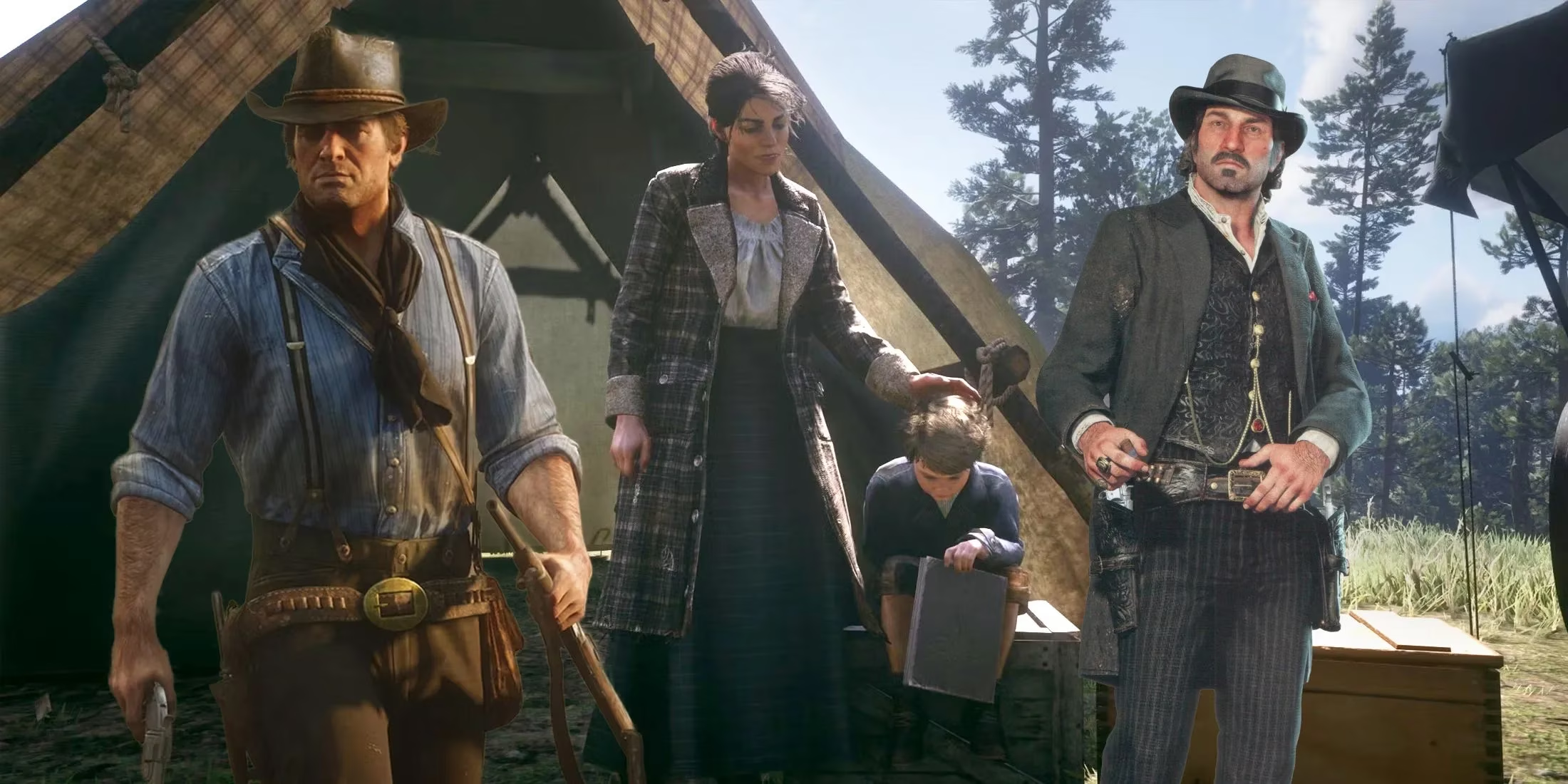Six Influential Figures Who Molded Arthur Morgan's Journey in Red Dead Redemption 2
Explore Arthur Morgan's transformative journey in Red Dead Redemption 2, where love, loss, and external influences shape his quest for redemption in the fading Wild West.
Arthur Morgan's evolution throughout Red Dead Redemption 2 remains one of gaming's most compelling character arcs. Set against the fading backdrop of the Wild West in 1899, his transformation from hardened outlaw to a man grappling with redemption didn't occur in isolation. Specific individuals left indelible marks on his soul, steering his moral compass through love, loss, betrayal, and unexpected grace. Their influences manifested in his actions, relationships, and ultimately, his final choices when facing mortality. These complex dynamics reveal how external forces shape identity within Rockstar's masterpiece narrative.
🔍 People Also Ask
- What made Arthur Morgan question Dutch's leadership?
Dutch's increasingly erratic behavior and manipulation became impossible to ignore, especially after the Saint Denis bank heist disaster and Hosea's death.
- How did Arthur's past trauma affect his relationship with Jack?
The murder of his own son Isaac made him fiercely protective of Jack, seeing in him a second chance to protect what he'd failed to safeguard before.
- Why couldn't Arthur and Mary Linton stay together?
Their star-crossed dynamic pitted Arthur's outlaw loyalties against Mary's societal expectations, creating an insurmountable divide despite mutual affection.
- Was Sister Calderon's influence religious or philosophical?
Her guidance focused on universal human goodness rather than doctrine, helping Arthur recognize his capacity for change beyond religious frameworks.

🌹 Mary Linton: The Unattainable Anchor
Mary represented everything Arthur couldn't have—respectability, stability, and societal acceptance. Their bittersweet romance spanned years, with stolen moments underscoring their impossible situation. When she ultimately severed ties, Arthur plunged deeper into the gang's violent existence. Yet her lingering presence haunted him, surfacing in journal sketches and quiet reflections. Their final encounter revealed painful truths: Arthur's loyalty to Dutch outweighed even this profound love. She remained a ghost of what might've been, a constant reminder that redemption required sacrifices he wasn't ready to make... until it was nearly too late.
👨👦 Abigail Roberts: Reflection of Regret
Abigail mirrored Arthur's deepest failure—the family he'd lost. His protectiveness toward her and Jack stemmed directly from the tragedy of Eliza and Isaac's murders years earlier. Where John neglected paternal duties, Arthur compensated through covert support: teaching Jack to fish, ensuring Abigail's safety, and silently atoning for past abandonment. Their dynamic evolved beyond unrequited early attraction into something far more profound—a platonic bond where Abigail represented motherhood's resilience while Jack symbolized innocence worth preserving in a dying world.
🌿 Hosea Matthews: The Moral Compass
As Dutch obsessed over grand ideologies, Hosea provided grounding. He taught Arthur practical wisdom: helping struggling homesteaders, respecting Indigenous territories, and understanding nature's rhythms. Their hunting trips doubled as philosophical lessons contrasting sharply with Dutch's fanaticism. Hosea's death during the Saint Denis bank job shattered Arthur's remaining illusions about Dutch's leadership. Without his calming presence, the gang's descent accelerated—forcing Arthur to question whether loyalty meant complicity. Hosea's legacy lived on in small moments: Arthur's kindness to strangers, his journal observations about wildlife, and that persistent whisper about doing what's right when nobody's watching.
🐍 Dutch Van der Linde: The Poisonous Father Figure
Dutch crafted Arthur into his perfect weapon—literate yet distrustful of civilization, deadly yet devoted. For decades, Arthur viewed him as a visionary fighting corrupt systems. But as Dutch's plans grew reckless, cracks appeared: the Blackwater massacre, needless violence in Rhodes, betraying Native allies. Arthur's realization that Dutch saw him as a tool rather than a son became the ultimate betrayal. Their final confrontation atop Mount Hagen wasn't just about survival—it was Arthur rejecting decades of indoctrination. Yet even then, Dutch's parting words carried chilling weight, proving how deeply manipulation had rooted itself.
✝️ Sister Calderón: The Unlikely Beacon
Meeting this humble nun in Saint Denis marked Arthur's spiritual awakening. Her nonjudgmental compassion offered something gang life never could: absolution without conditions. Their conversations on park benches became confessional spaces where Arthur admitted fears about mortality and regret. She never preached—instead, she reframed goodness as everyday choices: helping a stranger, protecting the vulnerable, choosing mercy. Her teachings crystallized during Arthur's illness, transforming his final acts into a quiet atonement. Her impact proved that redemption isn't found in grand gestures but in small, consistent acts of humanity.
🐺 John Marston: The Brotherly Mirror
Their rivalry masked deep fraternal bonds. John embodied everything Arthur resented—Dutch's favoritism, reckless escapes from responsibility—yet also represented everything Arthur secretly desired: a family unit. Protecting John became Arthur's last mission not out of duty, but because he saw in John the chance for a life he'd sacrificed long ago. Their final ride together symbolized this complex duality: resentment transformed into sacrifice, rivalry into legacy. Arthur ensured John's escape knowing it meant his own end, making peace with being the ghost who'd haunt his brother's second chance.
Arthur Morgan's journey shows how identity isn't self-created—it's forged through collisions with others. These six souls held up mirrors reflecting his best and worst impulses, challenging him to choose who he'd become when the West's sunset finally came. Their echoes lingered long after the credits rolled, leaving players to ponder: Can we ever truly escape the people who shaped us?